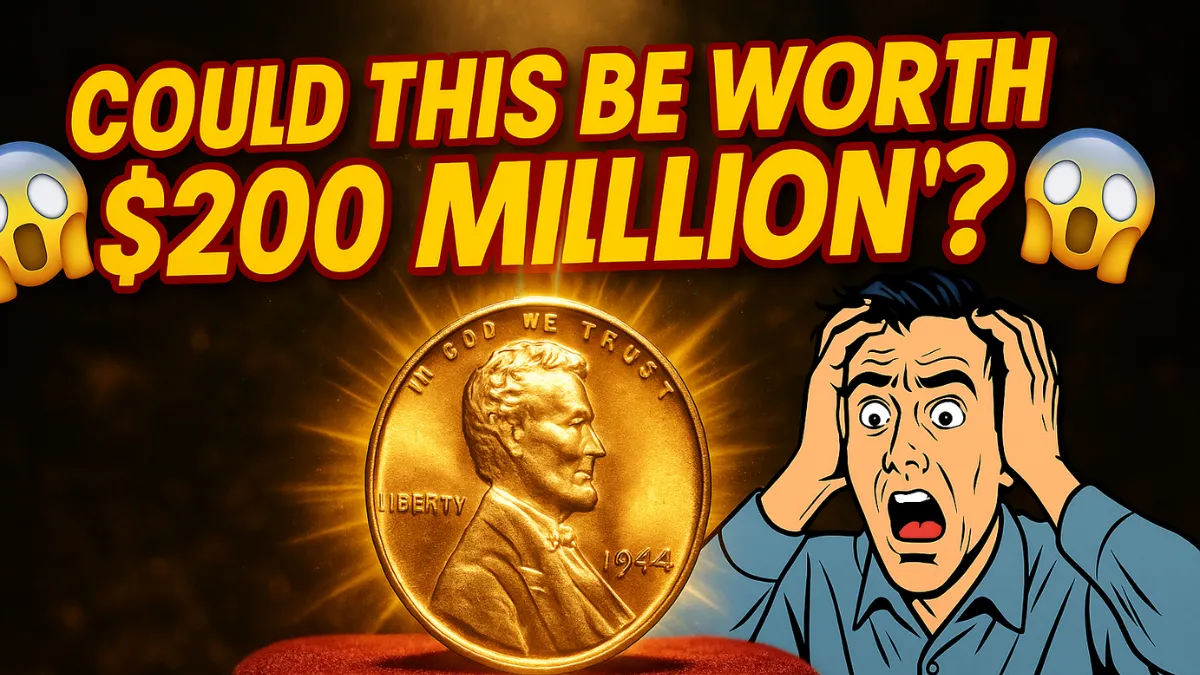While most of us barely give a second thought to the pennies we receive in change, coin collectors know that some of these small copper coins can be worth a fortune. A perfect example of this came to light when a Massachusetts man, Don Lutes, discovered he had been holding onto one of the rarest U.S. coins in history — the 1943 bronze Lincoln Wheat cent.
The Story of Don Lutes and His Rare Find
In 1947, a then-teenage Don Lutes received what seemed to be an ordinary penny as change in his high school cafeteria. He held onto it for decades, unaware that he had one of the few 1943 bronze Lincoln cents — coins mistakenly struck in bronze during a year when the U.S. Mint had switched to zinc-coated steel to conserve copper for World War II.
Before his passing in 2018, Lutes decided to consign the coin to Heritage Auctions. In January of that year, the penny sold for a staggering $204,000. True to his community spirit, Lutes directed the proceeds to the Berkshire Athenaeum, his local library in Pittsfield, Massachusetts.
Why Rare Pennies Are a Big Deal
As explained by David Stone, a coin expert at Heritage Auctions, pennies have been part of America’s currency system from the start. Their small size doesn’t stop them from reaching high values — a 1792 Birch cent, for instance, was once sold for $2.6 million.
A penny’s value is determined by factors such as rarity, minting mistakes, and overall condition. Though most are worth just one cent, rare examples can bring in tens of thousands of dollars or more.
Valuable Pennies That Could Be in Your Possession
Curious if your spare change could hold a hidden gem? Here are some Lincoln pennies that collectors actively seek:
| Year/Type | Estimated Value | Identifying Features |
|---|---|---|
| 1943 Bronze Lincoln Cent | $150,000 – $200,000+ | Bronze color, 1943 date, not magnetic |
| 1969-S Doubled Die Obverse | $35,000 – $75,000 | Doubling visible on “LIBERTY” and “IN GOD WE TRUST” |
| 1992 Close AM Reverse | $2,000 – $20,000 | Narrow space between the “A” and “M” in “AMERICA” |
| 1972 Doubled Die Obverse | $100 – $500 | Doubling on the date and text |
What Makes These Coins So Valuable?
The 1943 bronze cent is a standout error coin due to its accidental creation during the wartime shift to steel pennies. Only a handful were produced, making them highly sought after.
The 1969-S Doubled Die Obverse also stands out thanks to a noticeable doubling of the lettering — a mistake that escaped the Mint’s attention until it was too late. Fewer than 1,000 are known to exist.
Then there’s the 1992 Close AM, a result of using a proof coin die for a regular penny. While more common than the other rare finds, it’s still valuable due to its unique design anomaly.
The 1972 Doubled Die Obverse is easier to find but still desirable. Roughly 250,000 may have circulated, and the error is similar to that of the 1969-S penny, with noticeable doubling on the date and lettering.
Final Thoughts
The odds of striking it rich through pocket change are slim, but as Don Lutes’ story shows, it’s not impossible. So next time you’re handed a handful of coins, take a moment to look — there could be a small fortune hiding in plain sight.
FAQs
How much was Don Lutes’ penny sold for?
It fetched $204,000 at auction.
Why is the 1943 Lincoln penny valuable?
It was mistakenly struck in bronze instead of steel during World War II.
What is a Doubled Die penny?
It’s a coin with a visible doubling error created during the minting process.
How rare is the 1969-S Doubled Die?
Fewer than 1,000 are believed to exist.
Is it possible to find a valuable penny in circulation?
Yes — while rare, these valuable coins occasionally appear in everyday change.
